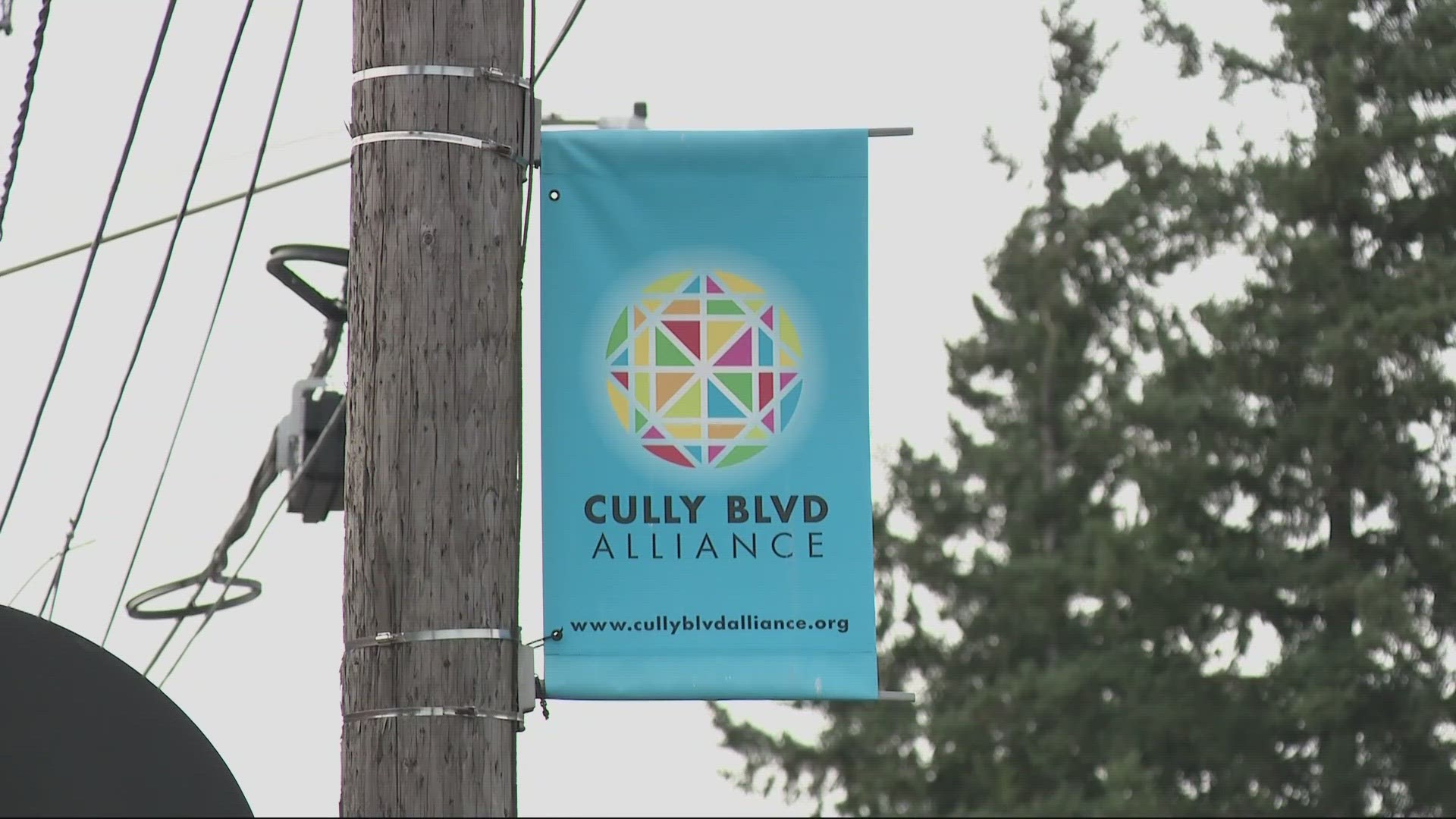PORTLAND, Ore. — People in Portland’s Cully neighborhood are getting a chance to work together to address low-level crime in their community, all thanks to a $2 million federal "Reimagining Justice" grant.
The grant will fund a unique community-based program built on newer thinking when it comes to crimes like theft and vandalism, based on the premise that a police response may not be the best way to go. Instead, Cully neighbors will be coming up with new ways to deal with public safety.
The northeast Portland neighborhood is big and diverse, and the difficulties with crime here are real — but local leaders want to address the root causes instead of just treating the symptoms.
“People are stealing because of addiction, poverty, houselessness or other societal, really social problems," said Abby Stamp. "We have thrown everything at law enforcement's feet and just said, 'Fix it.'”
Stamp leads Multnomah County's Local Public Safety Coordinating Council. She said the Reimagining Justice Project has two goals: to increase trust and legitimacy of policing and to increase non-law enforcement responses to low-level crimes. The program will rely on ideas from the community.
“The solutions are always going to come from the people closest to the problems. And I think what we as government can do ... not so much get out of the way, but more affirmatively support, so I think that's our role here,” said Multnomah County Commissioner Susheela Jayapal.
Jayapal worked to get the Federal Bureau of Justice Assistance grant and said Cully earned it.
“I absolutely think there's been a foundation laid here and that's one of the other reasons that we identified Cully as the place to start,” said Jayapal, referring to various community improvement projects, including affordable housing, that have been developed in the neighborhood over the past several years.
Now that the grant money is in place, the Native American Youth and Family Center on Northeast Columbia Boulevard will lead the effort, reaching out to find new solutions to crime and public safety issues.
“So, we need to set up a process to let the community really define what the solution is, and then we just sort of set the stage, whether it's resources or partnerships, be able to provide that support,” said NAYA Interim CEO Oscar Araya.
In fact, the next year will be just about listening — and then the next two years will be about taking those ideas and acting.
“I hope that we can really pay people for their participation and to thank them for their wisdom and expertise as we try to build this out, decrease reliance by law enforcement that has a lot of other work to do outside of low-level crime, and see what kind of innovation we can start to grow,” said Stamp.
This is the very beginning of a work in progress, but some of what's likely to come will center around support for people who are struggling, to lift them out of desperation and crime.

